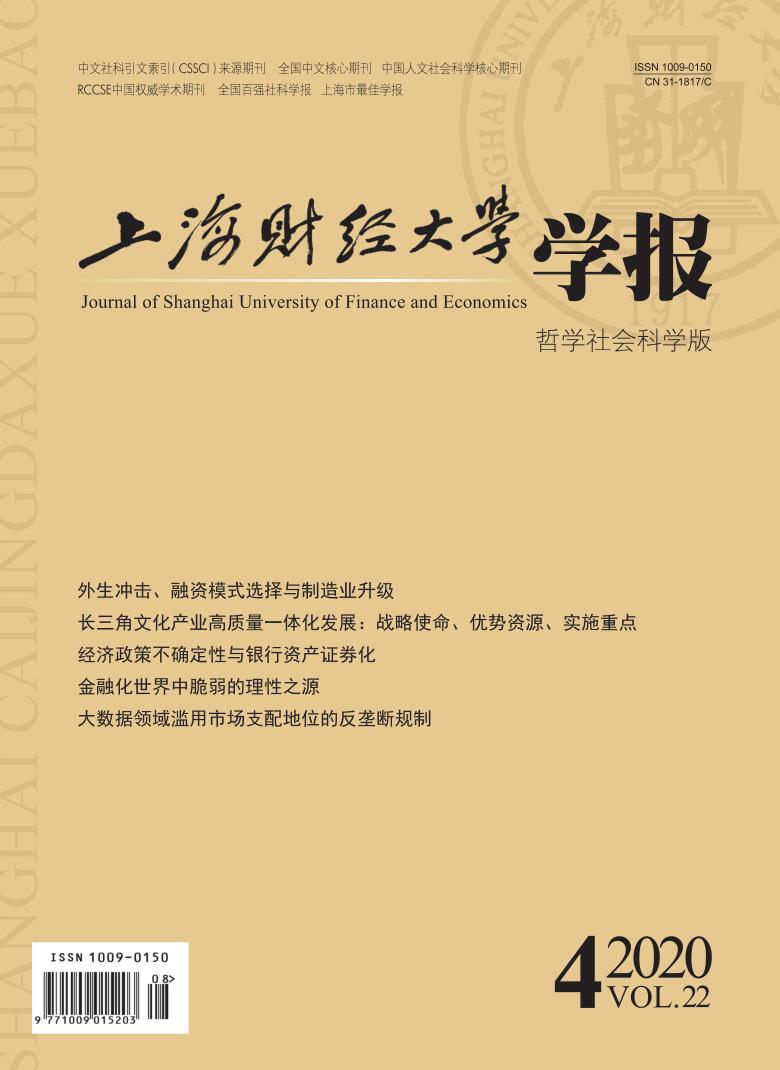Simultaneously dealing with economic and trade frictions provoked by the US as well as the COVID-19 epidemic has brought increased downward pressure on the market and global trade uncertainty to China, and manufacturing industry is facing strong negative exogenous shocks. In order to explore how to adjust the financial supply environment during bad times for the purpose of unleashing the competitiveness of the real economy along with technological innovation in the face of adversity and promoting the transformation of “Made in China” to “Created in China”, this study builds a framework for analyzing the mechanism of debt financing and equity financing influencing industrial upgrading from a global perspective at first, and theoretically analyzes the impact of exogenous shocks on the relationship between financing structure and industrial upgrading. Then, this study designs indicators that reflect the process and result of industrial upgrading separately, and further reveals the trajectory of financing structure and industrial upgrading along with their associated characteristics under the influence of exogenous shocks by empirical research based on the data of Chinese manufacturing listed companies during the period of 2006-2018. Overall, our study indicates that debt financing could inhibit but equity financing could promote R&D expenditures, while both debt financing and equity financing could promote the improvement of capital-labor ratio. Debt financing could inhibit productivity while equity financing could increase productivity on the whole. Findings also indicate that negative exogenous shocks could strengthen the negative impact of debt financing on industrial upgrading while promoting the positive role of equity financing, and the effect of positive exogenous shocks is the opposite. At last, for enterprises of different ownership, negative exogenous shocks could exacerbate the inhibitory effect of debt financing on non-state-owned enterprise R&D expenditures and state-owned enterprise labor productivity, while are more conducive to the role of equity financing in promoting the research and development expenditure of non-state-owned enterprises and the capital-labor ratio of state-owned enterprises. This study reveals the mechanism of the financing structure’s effect on industrial upgrading under the influence of exogenous shocks. The conclusion of the study provides a theoretical basis and experience support of the transmission mechanism for the current financial system to guarantee the transformation and upgrading of the manufacturing industry more specifically, and provides important policy implications for financial supply-side reforms and manufacturing upgrading.
 / Journals / Journal of Shanghai University of Finance and Economics
/ Journals / Journal of Shanghai University of Finance and EconomicsJournal of Shanghai University of Finance and Economics
LiuYuanchun, Editor-in-Chief
ZhengChunrong, Vice Executive Editor-in-Chief
GuoChanglin YanJinqiang WangWenbin WuWenfang, Vice Editor-in-Chief
Exogenous Shocks, Financing Mode Selection and Manufacturing Upgrading: Also on Financial Supply-Side Reforms during Economic and Trade Frictions along with the COVID-19 Epidemic
Journal of Shanghai University of Finance and Economics Vol. 22, Issue 04, pp. 3 - 17 (2020) DOI:10.16538/j.cnki.jsufe.2020.04.001
Summary
References
Summary
Cite this article
Sun Wei, Dong Wenyu, Song Nan. Exogenous Shocks, Financing Mode Selection and Manufacturing Upgrading: Also on Financial Supply-Side Reforms during Economic and Trade Frictions along with the COVID-19 Epidemic[J]. Journal of Shanghai University of Finance and Economics, 2020, 22(4): 3-17.
Export Citations as:
For
ISSUE COVER
RELATED ARTICLES





 7080
7080  9243
9243

